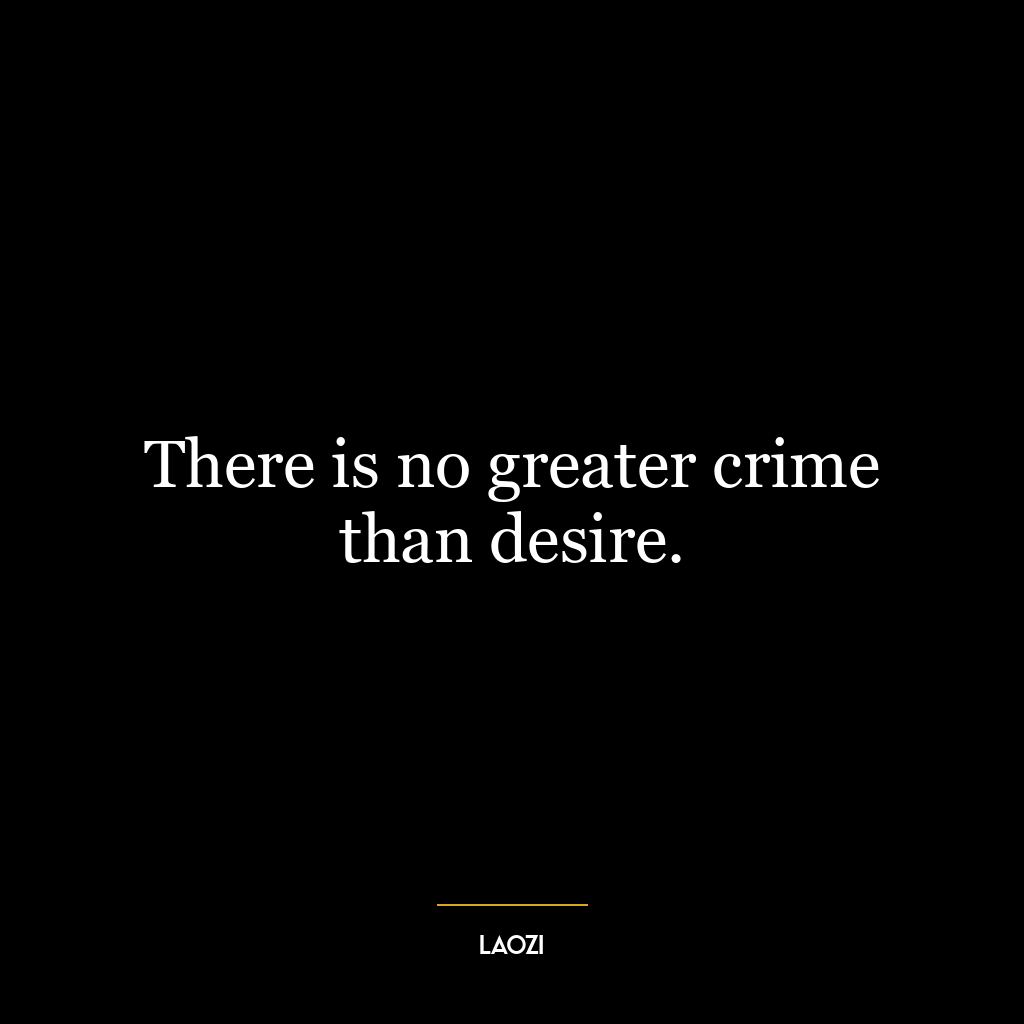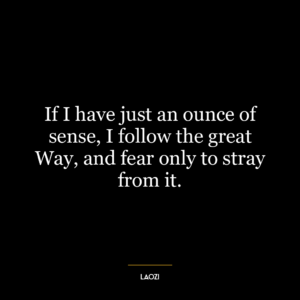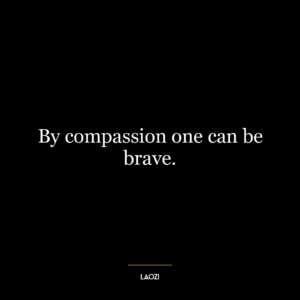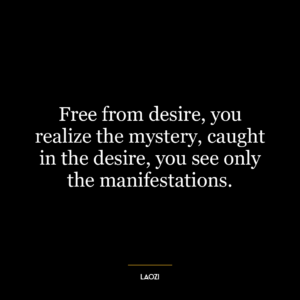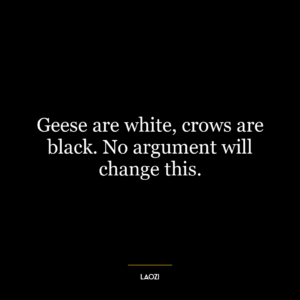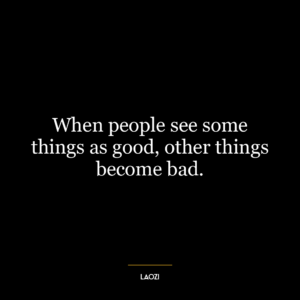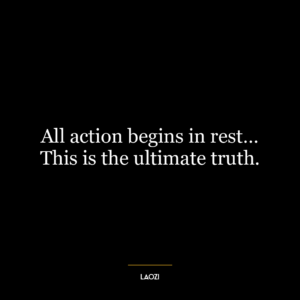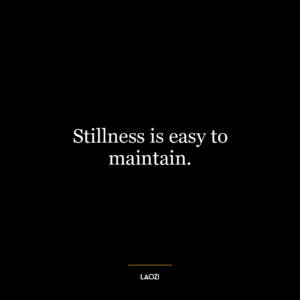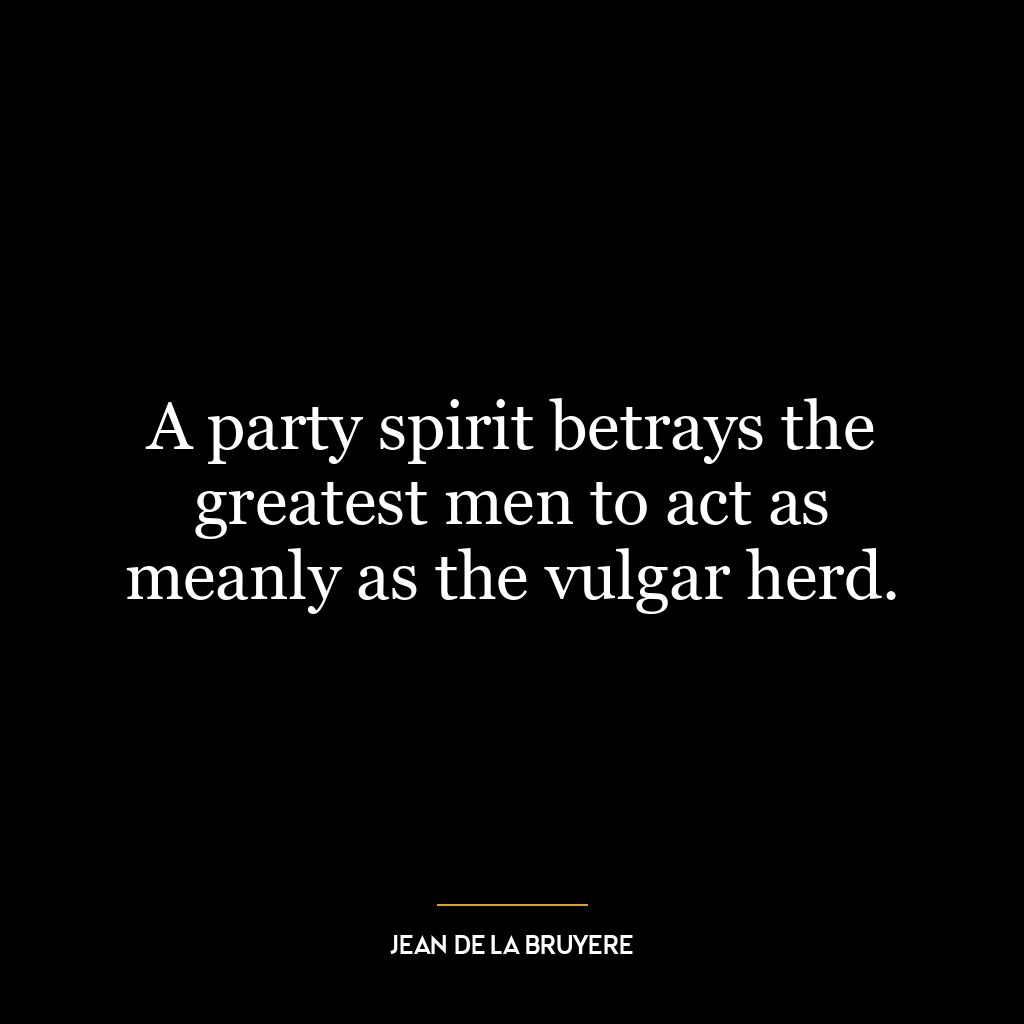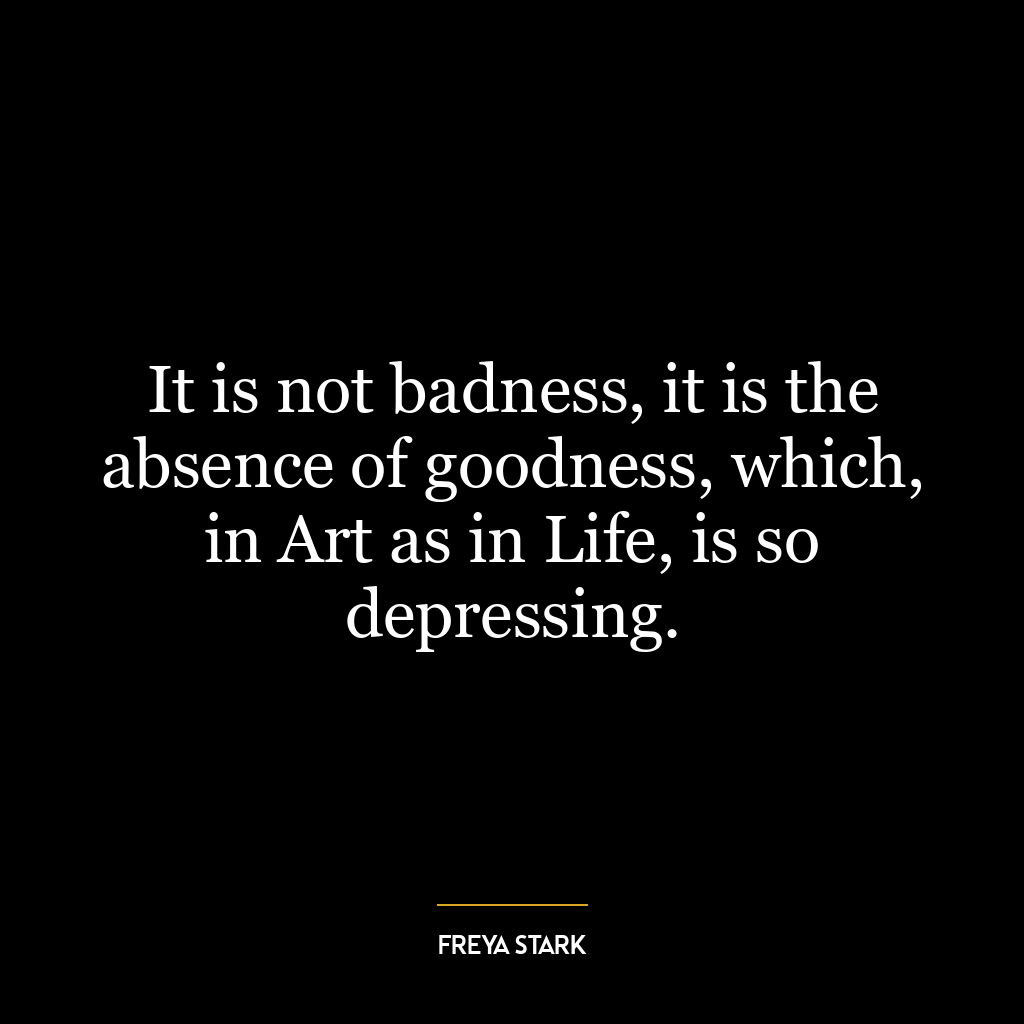There is no greater crime than desire.
There is no greater crime than desire” is a quote that underscores the perils of unchecked longing or craving. Desire, in this context, refers to an insatiable need or want for something that is beyond what is necessary or essential for survival or contentment. It suggests that excessive desire can lead to greed, envy, dissatisfaction, and unrest, which are considered detrimental to personal peace and societal harmony.
This quote is deeply rooted in the philosophy of minimalism and contentment. It encourages the practice of self-restraint, moderation, and the appreciation of simplicity. The idea is that by curbing our desires, we can achieve a state of inner peace, contentment, and overall well-being. It’s about understanding that more isn’t always better, and that constantly wanting more can lead to a cycle of never-ending dissatisfaction.
In today’s world, this quote is highly relevant. We live in a consumer-driven society that constantly encourages us to want more – more money, more possessions, more success. This can lead to feelings of inadequacy and unhappiness, as we are always striving for something we don’t have, rather than appreciating what we do have.
In terms of personal development, this quote can be a guiding principle for those seeking inner peace and contentment. It encourages us to focus on our needs rather than our wants, and to appreciate the value in simplicity and moderation. It suggests that by reducing our desires, we can reduce our worries and anxieties, leading to a more peaceful and fulfilling life.
However, it’s important to note that this quote doesn’t mean we should completely eliminate desire. Desire is a natural human emotion that can motivate us to achieve our goals and improve our lives. The key is to manage our desires in a healthy and balanced way, ensuring they don’t consume us or lead us to harm ourselves or others.

